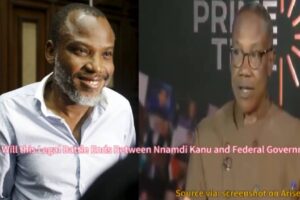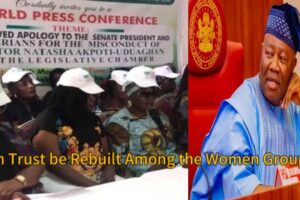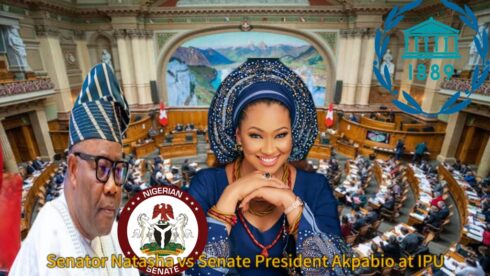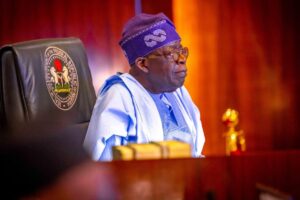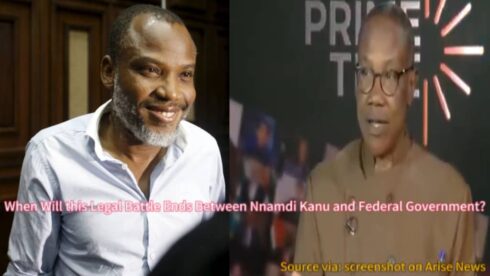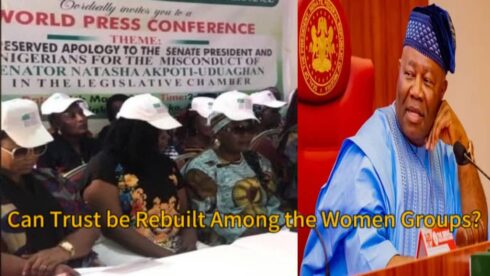CBN Governor Yemi Cardoso disclosed a monumental N6.2 trillion loss linked to the foreign exchange (FX) regime subsidy. This revelation, shared during a high-profile economic forum, sheds light on the far-reaching consequences of these subsidies, which have severely undermined the nation’s financial stability. Yemi Cardoso stressed the pressing need for reform, pointing out that such losses exacerbate existing fiscal challenges and limit the government’s ability to address critical developmental priorities.
The N6.2 trillion FX subsidy loss reflects deep-seated inefficiencies within Nigeria’s fiscal framework. With mounting national debt and diminishing revenues, the country finds itself at a crossroads, necessitating urgent economic restructuring. This substantial financial leakage not only highlights the vulnerabilities in Nigeria’s monetary policies but also serves as a clarion call for sustainable practices to mitigate future losses and foster long-term economic growth.
Breaking Down the FX Subsidy Loss
The N6.2 trillion loss from the FX subsidy primarily stemmed from discrepancies in exchange rates and artificially controlled pricing mechanisms. These practices, aimed at stabilizing the naira, inadvertently drained critical national resources.
CBN’s subsidized FX policy was intended to support import-dependent industries and stabilize inflation. However, Cardoso pointed out that these efforts created arbitrage opportunities, encouraging rent-seeking behaviors that further eroded public funds.
Fuel Subsidies Add to Economic Woes
In addition to the FX losses, Yemi Cardoso disclosed that Nigeria recorded a N4.5 trillion deficit in 2022 due to fuel subsidies. This significant drain on resources compounded the country’s economic challenges, diverting funds that could have been invested in critical infrastructure and social programs.
The fuel subsidy regime, long criticized for inefficiency and corruption, has become a major liability. Experts argue that these subsidies disproportionately benefit the wealthy while failing to provide meaningful relief to the average Nigerian.
Economic Implications of Sustained Subsidies
The combined losses from FX and fuel subsidies highlight a systemic issue that hinders Nigeria’s economic growth. These subsidies have reduced the government’s ability to fund key sectors, including healthcare, education, and security.
Analysts warn that unless decisive action is taken, these fiscal leakages could lead to further economic instability. Yemi Cardoso’s comments serve as a wake-up call for policymakers to reevaluate subsidy frameworks and adopt more effective economic policies.
Yemi Cardoso: Calls for Urgent Policy Reforms
In response to the losses, Yemi Cardoso advocated for comprehensive reforms to phase out unsustainable subsidies. He stressed the importance of aligning fiscal policies with economic realities to prevent future financial crises.
Efforts to remove subsidies must be accompanied by measures to cushion their impact on vulnerable populations. Implementing targeted interventions and promoting economic diversification could help reduce dependency on volatile sectors like oil and foreign exchange markets.
Strategic Solutions to Address Nigeria’s Fiscal Losses
Tackling Nigeria’s staggering losses from subsidies requires a well-rounded and strategic approach. Economic experts advocate for enhancing revenue generation through improved taxation systems, including expanding the tax net and addressing tax evasion. Equally critical is the need to eliminate corruption within subsidy programs, which has historically drained public funds and impeded national development. Strengthening monetary policies to stabilize the naira and reduce exchange rate volatility is another pivotal step toward mitigating economic disruptions and fostering investor confidence.
Governor Yemi Cardoso’s call for reforms highlights the necessity of adopting a sustainable economic model. Transparency and accountability must form the bedrock of these efforts, ensuring that public resources are utilized efficiently. By implementing targeted interventions, diversifying the economy, and fostering robust fiscal policies, Nigeria can navigate its current economic challenges and build a resilient foundation for future growth. These measures are vital to restoring stability and achieving long-term financial sustainability.
Table of Contents
Discover more from OGM News NG
Subscribe to get the latest posts sent to your email.



